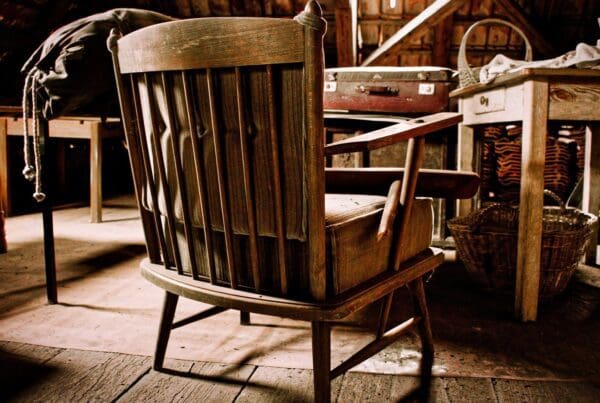Decluttering your home is one of the best things you can do for your mental health. Cleaning out that unspeakably messy closet, clearing out the junk in your garage, and banishing unused items hidden away in the dark corners and drawers of each room will lower your stress levels, boost your self-confidence, and leave you with a home you can be proud of. However, it’s also important to keep the environment in mind when you’re bringing order to your living space, and there are simple ways to do that.
Living Green Technology wants you to thrive as an individual, and for our planet to thrive as a whole. With all this in mind, read on for tips to help you reduce the stress in your life while minimizing the negative impact on the environment.
Recycle household goods
If you’re confused by recycling, know that you aren’t alone. Let’s start with the easiest part: recycling the small stuff. Many people don’t recycle simply because they don’t know what can be recycled. However, there are many kinds of household goods that can be thrown into the recycling bin instead of the trash, including:
- Plastic — Water bottles, soda bottles, milk jugs, and cleaning solution/personal hygiene bottles. If you look on the bottom of a container and see a number 1-7, you can recycle it.
- Paper — Things like junk mail, phone books, envelopes, newspapers, office paper, and magazines. You can recycle shredded paper, too.
- Metal — Any food/beverage cans (i.e., aluminum, steel, tin) and scrap metal.
- Glass — All food and beverage containers/jars (clear and colored).
- Cardboard — Shipping boxes, poster board, file folders, and unsoiled food containers.
Recycle bigger stuff
It’s also important to consider other options for the larger items you’re getting rid of. One option is selling your used items in the second-hand economy, which makes you some cash while also helping the environment. For the items that are not in good condition, many of them can be recycled:
- Clothes — 95 percent of textiles are recyclable, but 85 percent end up in the landfill. When you’re decluttering your closet, consider taking clothes that are in good condition to a local thrift store or charity.
- Mattresses — Around 20 million mattresses are thrown away each year, covering miles of landfill space. If your mattress is in good shape, donate it; if it’s worn out, look for a nearby recycling center that will accept it.
- Electronics — Old TVs, VHS players, computers, gaming consoles, and other electronic goods can be given away, sold, or taken to a recycling service. A recycling service like Living Green Technology can often salvage parts from old electronics to refurbish other devices.
- Appliances — An average household appliance contains 75 percent steel, which is the most recycled material in the U.S. Some appliances can be picked up as part of normal curbside service, while you may need to schedule a special pick-up for others. If your appliance is in good condition, you can always try selling it online; if not, you may be able to make a few bucks selling it for scrap metal.
Embrace the cloud
Another way to declutter and help the environment is to digitize your old photo albums. With a quick tutorial and a scanner, you can transfer your photos to the cloud, where they will be safe and accessible. If you need to add equipment to your home office for the endeavor, look to seasonal sales events to stretch your dollars. Or, have a company scan the photos and put them in the cloud for you.
In addition to minimization in the home, more people are turning to digital minimalism as well. Look at removing photos and documents you no longer need on your various devices. Storing them on the cloud can free up space on your device, and minimize your digital clutter.
There are eco-conscious ways to declutter your home. Consider upping your recycling game, digitizing your photos, and using green cleaning products. You’ll not only reap the mental health benefits of an orderly living space, but you will also have the peace of mind that you’re helping the environment.
Connect with Living Green Technology for more tips, and for services that help minimize your electronic waste.
Photo Credit: Pexels






